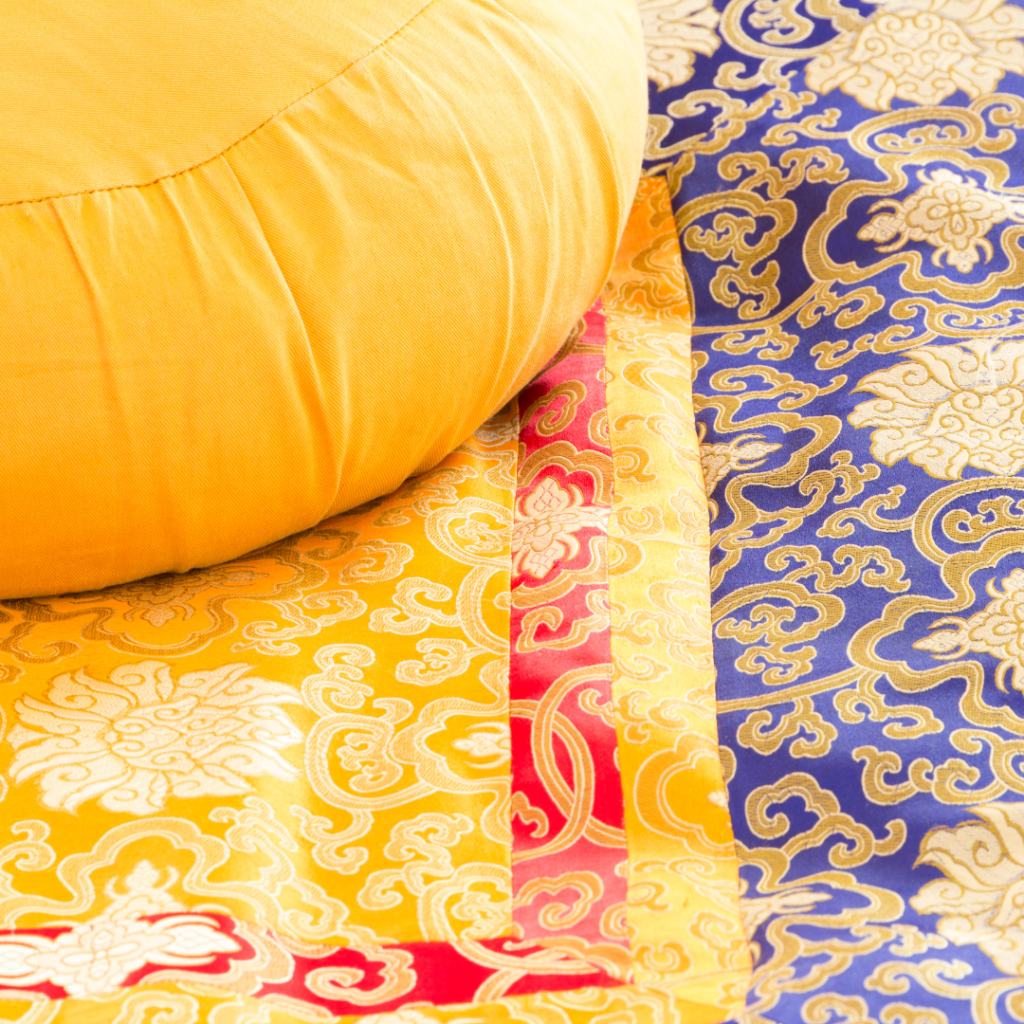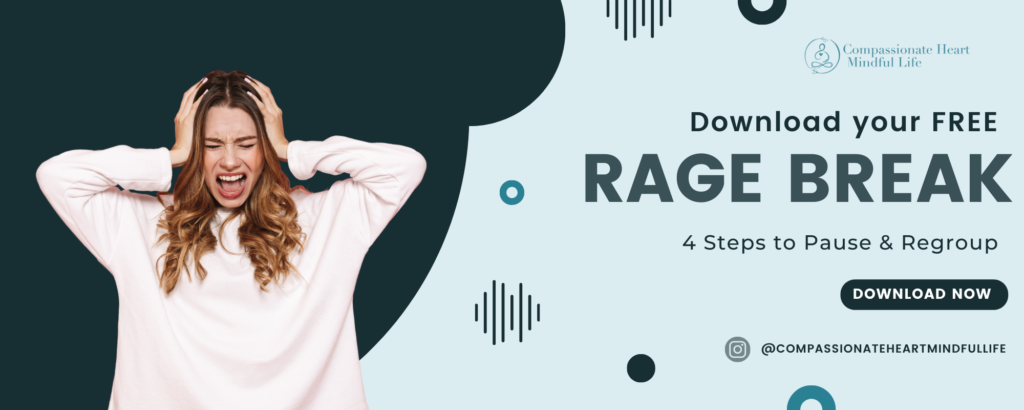I tend to rigidly grasp onto things with a death grip. Meditating is no exception.
The thought process goes something like this, “Meditation is helpful so I must do it daily for a half hour in the morning and half hour in the evening.” And when I don’t meet those unrealistic expectations, I’ll spiral into thoughts of, “That’s why I’m having a bad day. I should have meditated yesterday or longer or better” or whatever else I can come up with in the moment.

I could take even positive things like meditating and create rigid, perfectionistic, expectations around it, and therefore, probably taking a little (or a lot) of the positive benefits away and create yet another internal story of, I should be doing better, more, different.
After probably a year of meditating regularly, I noticed this pattern of applying my perfectionistic mindset in almost all areas of my life, including healthier areas like meditation.
Meditating regularly helped my internal pattern appear and become clear sort of like in the movie Matrix. Everything slows down and seems to happen in some kind of slow-motion picture or movie that I watch unfold in my mind. It’s actually pretty cool.
Before I was unhappy, sad, depressed, anxious, or on the edge and I didn’t know why, unless it was something obvious and right in front of me. I didn’t know what thought patterns contributed to my nearly consistent, painful feelings.
It was a whirling dervish. It just felt bad. When I started applying mindfulness into my everyday life, I slowly started to see the painful thought patterns I was stuck in. That’s when I needed self-compassion more than ever.
Meditating, as a practice, already has a non-judgmental and loving quality to it. Using Kristen Neff’s Self-Compassion Break gave me a new route to take when I noticed I was being harsh with myself, blaming, shaming myself, or getting into a perfectionistic mindset. Over time, these patterns became easier to notice and step out of.
Thought for the day: Meditating
It’s awful to feel emotional pain and often what comes next is even more painful, our judgment about our painful emotions. In psychology, this is referred to as meta-emotion, our emotions about our emotions.
In meditation it’s called the second arrow. We often bleed out from the second arrow. Noticing our painful internal dialogue helps us then be able to create a new pathway of responding to ourselves with self-compassion.
I meditate most days, but if I’m too tired, I’ve had a few drinks or I just need a night off, I take it.
It’s OK because I know I’ll come back to it tomorrow. I’ve learned to trust myself past my perfectionism!
That is being flexible. That is letting go of rigid mindset, that is meeting myself with compassion.
I hope you can do the same.
The light in me sees the light in you,

~Michelle
Michelle Puster M.Ed.
Mindfulness Informed Professional
Helping burned-out parents find inner calm and compassion

440 Cobia Drive Suite 1301
Katy, TX 77494
832.361.1547
Check out my blog on Money and Relationsionships
